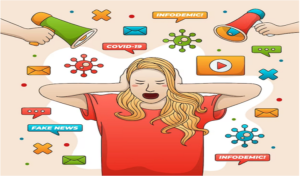Understanding Pandemics and the Impact on Society

Pandemics are biological events that have been bad for people for a long time. These things have a big effect on society, causing people to die, the economy to go down, and social unrest. Due to the COVID-19 outbreak, the world has been facing problems that have never been seen before. This piece will talk about pandemics, how they affect society, and what we can do to be better ready for the next one.
What’s a Pandemic?
A pandemic is when a sickness spreads all over the world and affects a lot of people. Pandemics can be caused by viruses, bacteria, fungi, and other types of animals. The difference between these outbreaks and more localised epidemics is that they affect people all over the world instead of just one place or region.
Pandemics: A Brief History
In the past, there have been several pandemics that affected the whole world. The Spanish Flu, which killed about 50 million people in 1918, was the worst of these pandemics. Other well-known pandemics include the 2009 H1N1 flu pandemic, the 2002 SARS outbreak, and the 2014 Ebola virus disease that hit several countries in West Africa.
What pandemics mean for society
Pandemics have a big effect on society, and the effects can last for a long time after the disease has stopped spreading. People die because of these things, health care bills go up, the economy goes down, and there is social unrest. The COVID-19 pandemic showed that even the most modern health care systems in the world can’t handle a big outbreak.
Deaths of people
The loss of life is the most important effect of a pandemic. Sometimes, a lot of people die, like during the Spanish Flu, when tens of millions of people died. The COVID-19 outbreak has killed a lot of people all over the world.
Downturns in the economy
Pandemics have a big effect on the business of the whole world. The world trade and tourist industries are getting hit hard, which is causing people to lose their jobs and the economy to slow down. To deal with the outbreak, countries have to spend a lot of money, which hurts the business even more.
Social Unrest
Pandemics can cause fear and doubt, which can make people act up. People might feel angry and powerless, which could lead to protests and riots. Due to lockdowns and economic problems, the COVID-19 outbreak has caused social unrest in several countries.
Getting ready for the next epidemic
It is important to get ready for the next outbreak so that it has less of an effect on society. Individuals, governments, and health care organisations can all take steps to lessen the effects of a spread.
Healthcare systems need to be improved.
The health care system needs to be improved so that it can respond to outbreaks. This means hiring more people to work in health care, stockpiling important medical tools, and making new vaccines and treatments.
Better keep track of diseases
To catch disease outbreaks early, there needs to be better disease monitoring. This includes making better tools for keeping track of disease cases and making it easier to test, track, and find people who might have been exposed.
Make people more aware
Campaigns to make people aware can help communities get ready for pandemics. These efforts should give people important information about the disease and how it spreads, as well as tips for keeping clean and staying away from other people.
Make sure everyone works together
Pandemics can only be stopped if people all over the world work together. Information and resources must be shared between governments and organisations. This means making a coordinated plan for how to respond and sharing medical information and skills.
Conclusion
Pandemics have a big effect on society, and the damage they cause can be very bad. It is very important to get ready for the next outbreak so that it has as little effect as possible on people’s lives, the business, and social stability. Governments, healthcare organisations, and people must work together to strengthen healthcare systems, improve disease surveillance, raise public awareness, and ensure global cooperation. We can be better ready for the next outbreak if we do these things.
Read More You May Like:
- The Role of Vaccination in Preventing Epidemics
- The Psychological Impact of Health Emergencies on Individuals and Communities
- The Importance of International Cooperation and Collaboration Against Global Health Threats
- Examining the Causes of Infectious Disease Outbreaks
- Effective Ways to Prevent and Contain Disease Outbreaks








